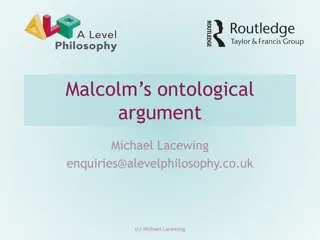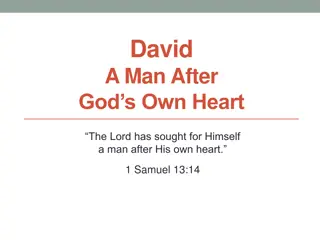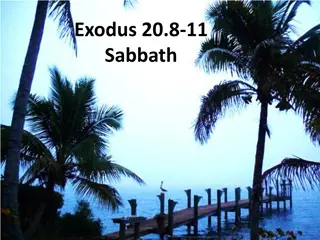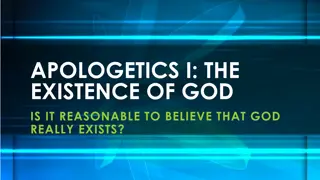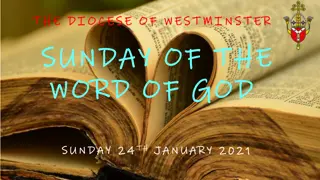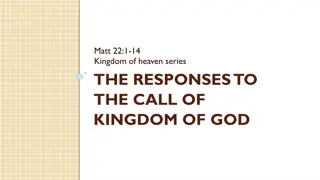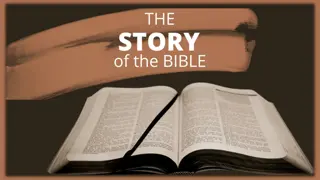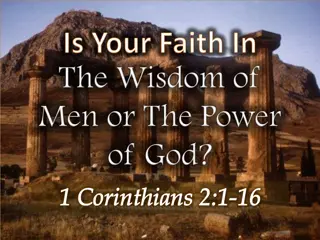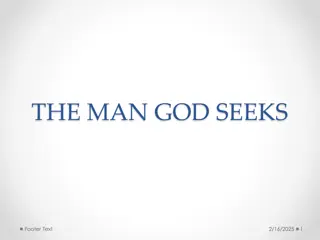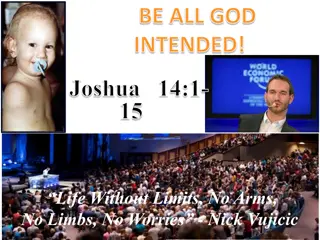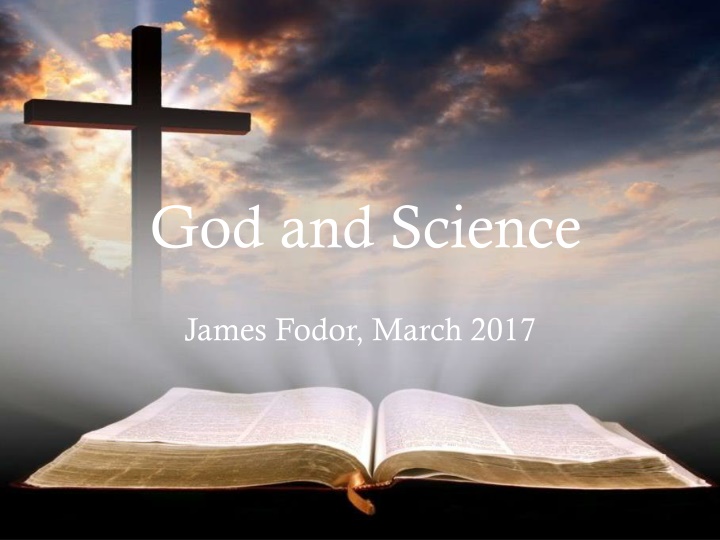
Exploring the Relationship Between God, Science, and Conflict Throughout History
Delve into the complex interplay between God, science, and conflict through a historical lens. From the narrative of independence to the debate around the conflict thesis, discover the evolving dynamics between religion and scientific inquiry. Uncover perspectives on the incompatibility, concordance, and conflict models, shedding light on how these two domains have intertwined and clashed over time. Explore the nuanced relationship between faith, reason, tradition, and intellectual exploration as different worldviews intersect and diverge in the pursuit of understanding the natural world and human values.
Download Presentation

Please find below an Image/Link to download the presentation.
The content on the website is provided AS IS for your information and personal use only. It may not be sold, licensed, or shared on other websites without obtaining consent from the author. If you encounter any issues during the download, it is possible that the publisher has removed the file from their server.
You are allowed to download the files provided on this website for personal or commercial use, subject to the condition that they are used lawfully. All files are the property of their respective owners.
The content on the website is provided AS IS for your information and personal use only. It may not be sold, licensed, or shared on other websites without obtaining consent from the author.
E N D
Presentation Transcript
God and Science James Fodor, March 2017
Independence (NOMA) Science tries to document the factual character of the natural world, and to develop theories that coordinate and explain these facts. Religion, on the other hand, operates in the equally important, but utterly different, realm of human purposes, meanings, and values subjects that the factual domain of science might illuminate, but can never resolve....These two magisteria do not overlap, nor do they encompass all inquiry (consider, for example, the magisterium of art and the meaning of beauty) Stephen Jay Gould
The Conflict Thesis 1874
The Conflict Thesis The history of Science is not a mere record of isolated discoveries; it is a narrative of the conflict of two contending powers, the expansive force of the human intellect on one side, and the compression arising from traditionary faith and human interests on the other. John Draper
The Conflict Thesis 1896
The Conflict Thesis In all modern history, interference with science in the supposed interest of religion, no matter how conscientious such interference may have been, has resulted in the direst evils both to religion and to science and invariably. And, on the other hand, all untrammeled scientific investigation, no matter how dangerous to religion some of its stages may have seemed, for the time, to be, has invariably resulted in the highest good of religion and of science. - Andrew White
The Conflict Thesis The vast majority of authors in the science and religion field is critical of the conflict model and believes it is based on a shallow and partisan reading of the historical record. https://plato.stanford.edu/entries/religion-science/#ScieReliChri
Summary Table Conflict NOMA Concord Evolution Religious scientists Active dialogue Origin of life Galileo Fine tuning Gene Oversimplified history Fact/value distinction Genetic information Origin of the universe Consciousness technologies Big Bang Theory Old Earth Faith vs reason Laws of nature
1. Cosmological Argument P1. The universe began to exist P2. Everything that begins to exist has a cause P3. If the universe had a cause, that cause was a personal creator C. A personal creator exists
2. Teleological Argument P1. The universe is fine-tuned for the existence of embodied, intelligent life P2. The only explanations for this fine-tuning are chance, physical necessity, or design P3. Chance and physical necessity are not plausible explanations C. Fine-tuning can only be explained by design





